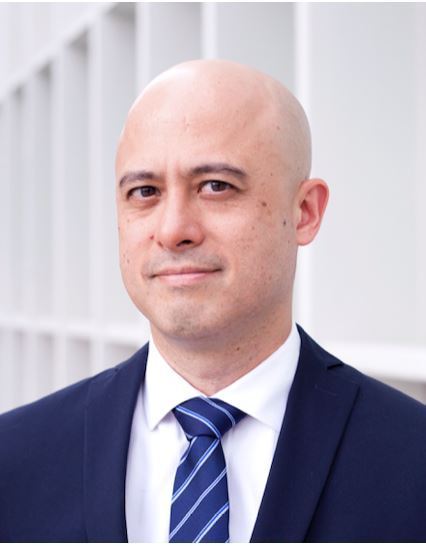[Herald Interview] NK likely to conduct nuclear test or reentry test this year: Singaporean expert
By Kim So-hyunPublished : July 23, 2020 - 14:02

SINGAPORE -- A Singaporean defense expert who has regularly interacted with North Korean diplomats here until last year said he expects Pyongyang to conduct a seventh nuclear test or a nuclear warhead reentry test, which is its next crucial step in achieving recognition as a nuclear power, around the US presidential election in November.
“My assessment, with high level of confidence, is that the Kim Jong-un regime will resume testing strategic nuclear weapons,” Graham Ong-Webb, an adjunct fellow at Singapore’ S. Rajaratnam School of International Studies, told The Korea Herald on Thursday.
“Under the current Trump presidency, I think there is zero prospect for a summit. North Korea has declared that the US has failed to achieve expected compromises with them.”
The next step in North Korea’s show of nuclear and missile capability to hit US territory is to prove that it has the technology that would allow a nuclear warhead to reenter the earth’s atmosphere, without burning out or detonating near space, after the missile carrying it reaches a certain point of altitude.
“Chinese rockets can reach Washington D.C. in 30 minutes, but in this age of satellite detection, 30 minutes can be long. It is still a benchmark for North Korea," Ong-Webb said.
“North Korea doesn’t have the computer technology to do a virtual testing (of reentry), so they will have to do a physical test.”
Pyongyang could alternatively go ahead with a seventh nuclear test, this time not in a mountain, but above ground somewhere in the region, the defense analyst said.
“There are about three to four potential sites including around Guam that the US postulates. This would be a more symbolic test to sort of warm up the situation, and after test No. 7, they could reassess whether to do the reentry test or not,” he added.
Ong-Webb refuted projections by some North Korea watchers that Pyongyang is likely to conduct more medium-range missile tests in the runup to the US election instead of directly provoking the US, for fear of retaliation.
“The US domestic society is completely consumed by the pandemic now. Medium-range missiles are not meaningful for Kim Jong-un. My argument is that countries in Northeast Asia -- South Korea and Japan -- are already socialized to this kind of short- or medium-range missile threats. South Korean and US military bases are already operating in theater under constant nuclear threat from the Russians and the Chinese. North Korea doesn’t really change the weightage of risk,” he said.
“The real threat that made Trump move is because North Korea’s weapons development holds US cities hostage. If Pyongyang (conducts nuclear or reentry) tests, it will be a very destabilizing moment in world politics.”
As for the timing, conducting the test before the US election would be high-risk, high-return for North Korea, Ong-Webb said.
“If Joe Biden continues to be in the lead and wins the US presidential race, a post-November nuclear test will be more likely. I have interacted with officials of the Kim Jong-un regime and they are very smart, talented people. They must be closely watching whether the US has an appetite for a preemptive strike, especially as the US is currently in its worst situation with the pandemic, and could seek to enjoy the absence of reprisal,” he said.
About the new South Korean unification minister nominee’s announcement on Thursday that Seoul will continue to work on bilateral ties with Pyongyang, despite bumps in US-North Korea relations, Ong-Webb said it was “commendable that the South Korean government has chosen to hold the high ground” despite the North’s recent detonation of the inter-Korean liaison office in Kaesong.
“South Korea is in a difficult position where it has to seek balance of being compassionate towards their northern brethren, but not at the cost of appearing weak. The North’s recent actions towards the South were a slap in the face, but working-level dialogue should continue,” he said.
Ong-Webb was among the group of RSIS scholars interested in North Korean issues who met with North Korean Embassy officials here on a monthly basis, but the meetings came to a halt partly because some embassy officials have been replaced, and after the failed Vietnam summit in February 2019, the North Koreans appeared to have felt embarrassed and did not want to talk.
They also could think that Singapore’s US channel has weakened under Trump, Ong-Webb said.
The defense analyst said it would be more constructive and healthier in terms of security in the long term if the US were willing to accept NK nuclear capability.
By Kim So-hyun (sophie@heraldcorp.com)







![[Graphic News] More Koreans say they plan long-distance trips this year](http://res.heraldm.com/phpwas/restmb_idxmake.php?idx=644&simg=/content/image/2024/04/17/20240417050828_0.gif&u=)
![[KH Explains] Hyundai's full hybrid edge to pay off amid slow transition to pure EVs](http://res.heraldm.com/phpwas/restmb_idxmake.php?idx=644&simg=/content/image/2024/04/18/20240418050645_0.jpg&u=20240419100350)






![[From the Scene] Monks, Buddhists hail return of remains of Buddhas](http://res.heraldm.com/phpwas/restmb_idxmake.php?idx=652&simg=/content/image/2024/04/19/20240419050617_0.jpg&u=20240419175937)

![[KH Explains] Hyundai's full hybrid edge to pay off amid slow transition to pure EVs](http://res.heraldm.com/phpwas/restmb_idxmake.php?idx=652&simg=/content/image/2024/04/18/20240418050645_0.jpg&u=20240419100350)

![[Today’s K-pop] Illit drops debut single remix](http://res.heraldm.com/phpwas/restmb_idxmake.php?idx=642&simg=/content/image/2024/04/19/20240419050612_0.jpg&u=)